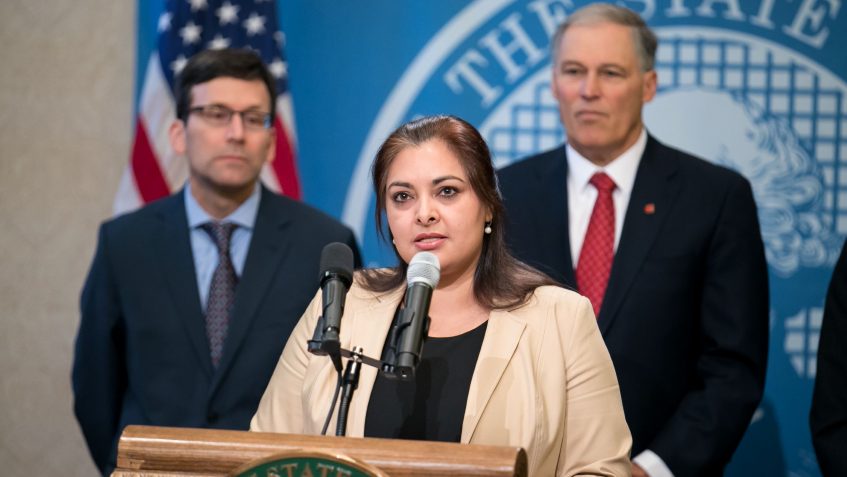From 425 Magazine
FAVORITE PLACES
To Relax Victor’s Celtic Coffee Co.
For Breakfast Village Square Cafe
For Dinner For special occasions, Café Juanita. And if I’m just hanging out with some girlfriends, I love going to The Stone House.
To Be Inspired Farrel-McWhirter Farm Park in Redmond
INSPIRATION BOARD
What Are You Reading? Where the Crawdads Sing by Delia Owens, Three Women by Lisa Taddeo, and Dear Girls by Ali Wong
Who Would Play You in a Movie? Either Priyanka Chopra or Mariska Hargitay from Law and Order
Mantra You Live By Be the change you wish to see in the world.
Last Thing You Googled Good takeout near me!
Best Advice You’ve Received The only thing in life we own is our reputation.
Q&A
How does your volunteer work and causes that are important to you inform your work as a state senator?
To me, it all really comes down to our children, like everything else in life. If we really want criminal justice reform long term, you have to make sure that we as a society have a good understanding of the factors that are impacting our children.
What does trauma-informed care look like in terms of the criminal justice system?
It gets down to, “How are we currently responding to individuals who are committing crimes?” I think it’s very important that our jails are doing trauma-informed intakes when people are getting arrested. Our judges should have a grasp on what factors informed this crime, and be able to ask if we can find a way to address those factors with the individual as well as within the broader community. And that is really a lot of what the therapeutic courts did and why they were so successful.
What inspired you to start API Chaya?
When I first moved to Washington for law school, I (had been) working with organizations that served survivors of domestic violence. I reached out to a number of organizations out here and asked them how many Southeast Asian women they serve, and over and over again I heard these agencies say, “We simply don’t see Southeast Asian women, and we don’t think domestic violence is a concern for that community.” And I was like, “No, no, this isn’t right.” … I met all kinds of women who were interested in starting a domestic violence organization specifically for Southeast Asian women.





